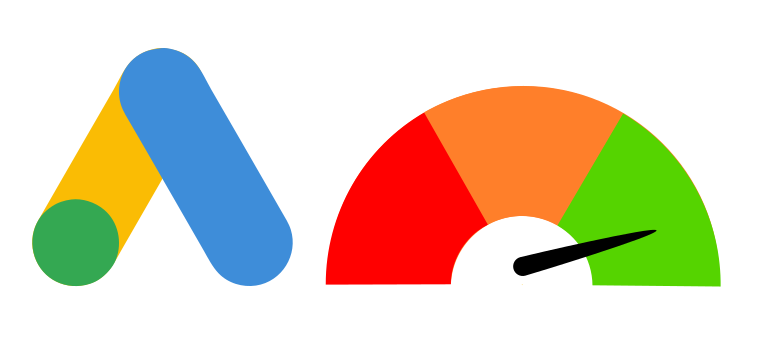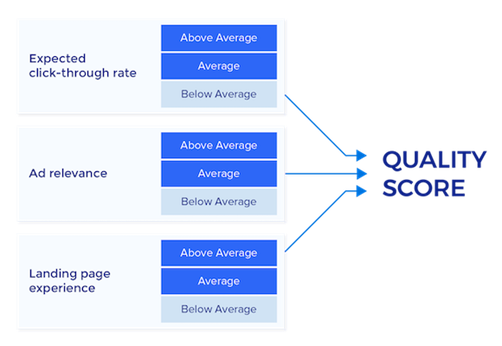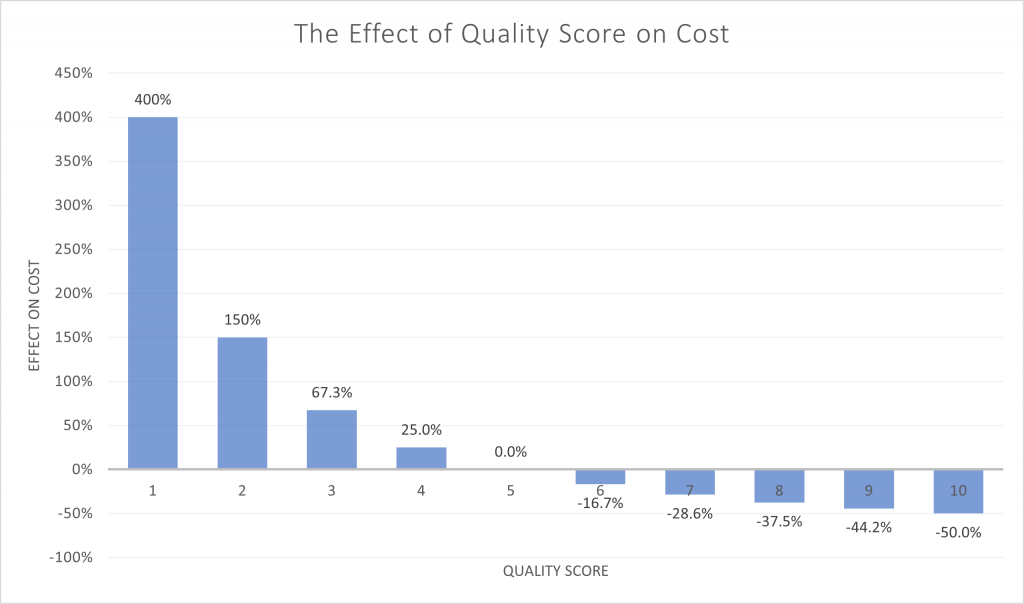
What Is Quality Score And Why Is It Important in Google PPC Ads?
Introduction:
Google PPC Search Ads are an essential tool for any business wanting to promote their products and services online. Since Google is the most used search engine, accounting for almost 90% of all Internet searches, Google Search Ads will give you access to a vast number of potential customers, and they are the first choice of most businesses for PPC advertising. So it’s important to understand what Google Ads Quality Score is and why it matters.
Quality Score is a key element which affects where your Ads will show, when they will show and how much you’ll pay for each user click.
This post is Part 1 of a two part series.
In this part we will take a look at:
- The Elements That Make Up Quality Score
- Why Quality Score Matters
- How Much Quality Score Affects Cost Per Click
- Where To Find Quality Score In Your Account
Understanding Quality Score
Quality Score is Google’s rating of the overall quality and relevance of your Ads. It looks at three elements:
- Expected Click Through Rate – the probability that someone will choose your Ad over the competition’s advert.
- Ad Relevance – how closely your advert matches the person’s search intent.
- Landing Page Experience – how well your landing page meets the person’s needs, considering its relevancy, usefulness and overall usability.

Each element is ranked with a status of ‘Above Average’, ‘Average’ or ‘Below Average’. This is based on a comparison against other advertisers over the last 90 days for the same keyword. Google then assigns an overall Quality Score out of 10 based on these measures.
Why Quality Score Matters
Your Quality Score can have an enormous influence on the effectiveness and cost of your search campaigns. The higher your score the better your Ad Rank, which means the more likely your advert will be shown to the searcher. Also, if someone clicks on your Ad your cost per click (CPC) will be lower than if your Quality Score were poor. Google have set a baseline Quality Score of 5 at which you will pay the “standard” CPC for your chosen keyword. Below this Quality Score your Ads will cost more per click and above it they will cost less.
Ad Rank: value that’s used to determine your ad position (where ads are shown on a page relative to other ads) and whether your ads will show at all.
How Much Does Quality Score Affect Cost Per Click?
A bar graph shows how large an effect Quality Score has on the CPC you pay. The cost increase for poor Quality Score is disproportionately more than the cost reduction for high Quality Score, reaching as much as 400%. In comparison a high quality score will only decrease your CPC by up to 50%.
It follows that it is really worth spending the time to achieve as high a Quality Score as possible. That 50% reduction in CPC could save you a lot of money.

Related: PPC Search Ads vs. Facebook Ads – Which Should I Use?
Where Can You Find Your Ad’s Quality Score?
You can see your Quality Score in the ‘Search keywords’ section of your Google account. Once there, click on ‘Columns’ from the table menu and select ‘Modify columns’. Then just scroll down to near the bottom of the options until you see ‘Quality Score’. Expand the concertina and select the options Quality Score, Exp. CTR, Landing Page exp. and Ad Relevance as shown below.

I like to list them in the order below, with Quality Score at the top followed by the elements which generate it.

Conclusion
In this post, we have looked at the elements that make up Quality Score, why Quality Score matters, how much Quality Score affects cost per click, and where you should look to find your Ad’s Quality Score.
In Part 2 of this series we’ll talk about the strategies you can use to improve your Quality Score and how you can track and monitor it.
We hope you enjoyed this post. If you found it useful, please feel free to share it or leave a comment. Or take a look at our other posts.
If there’s anything you’d like to discuss with us don’t hesitate to get in touch. An initial chat is free and without obligation.